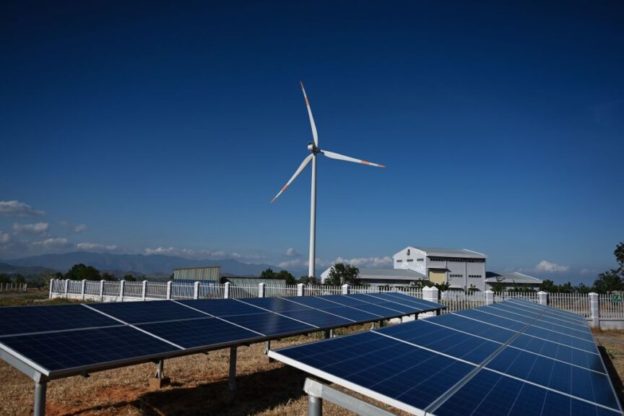- Alternative and green energy are “very productive right now,” said Ken Peng, head of investment strategy for Asia-Pacific at Citi Private Bank, during a virtual media briefing on Wednesday.
- David Bailin, chief investment officer at Citi Global Wealth, also said investors — especially younger ones — will place an “enormous emphasis” on sustainable and responsible investing in the next five to 10 years.
- The ability for companies to deal with cybersecurity risks is actually also part of the whole ESG discussion, Bailin said.
From green energy to equal access to education and technology, investors can find opportunities to make money through these “unstoppable trends,” says Citi.
Alternative and green energy are “very productive right now” where global trends are concerned, said Ken Peng, head of investment strategy for Asia-Pacific at Citi Private Bank, during a virtual media briefing on Wednesday.
“Governments from around the world from China to Europe to US are focusing on sustainable development and they are putting money where their mouths are,” he said.
But the sector “ran a little too hot” in 2020, as investors went in with borrowed money, he said. In the months since January, investors got out of their positions and that market fell 40% by May.
Now, he said, “I think this presents a very interesting opportunity to get on the bus for this trend that is likely to be with us for a good part of the next decade.”
David Bailin, chief investment officer at Citi Global Wealth, also said that over the next five to 10 years, investors — especially younger ones — will place an “enormous emphasis” on sustainable and responsible investing, and not just focus on profits.
They will look at how companies treat the environment, employees, and even politics will form part of their investment decision, he told CNBC on Tuesday.
He said the most important will be the “unstoppable trends” like climate change and social justice, including providing equal access to education and technology.
“All of those are areas that I think are going to have unusual growth in the next five to 10 years,” said Bailin, who is also the firm’s global head of investments. “So these two things will converge and I think, create an opportunity for investors to make money by doing good.”
Such investments, known as environmental, social and governance (ESG) investing, are on the rise. Last month, BlackRock told CNBC that ESG investments could reach $1 trillion by 2030.
Cybersecurity as part of ESG consideration
The ability for companies to deal with cybersecurity risks is also part of the whole ESG discussion, Bailin said.
“In my mind, what you have is this unstoppable trend with the need for greater defense (that) causes higher spending in that area, that’s good for the people who manufacture this type of security and you can invest in those,” he said.
Last month, Colonial Pipeline was hit by a cyberattack that forced the company to shut down approximately 5,500 miles of pipeline in the U.S., crippling gas delivery systems in Southeastern states.
At the same time, Bailin warned that such investments can have a “substantive risk.”
“Remember that cybersecurity also has a very significant military component to it,” he said.
“It’s used not just by corporations for ransom, but by the military to actually take down infrastructure in their adversaries,” he added. “So for us, it’s an area of continued concern, heightened concern — but also an area that’s actually investable.”
https://www.cnbc.com/amp/2021/06/11/citi-on-esg-investments-green-energy-renewables-cybersecurity.html





